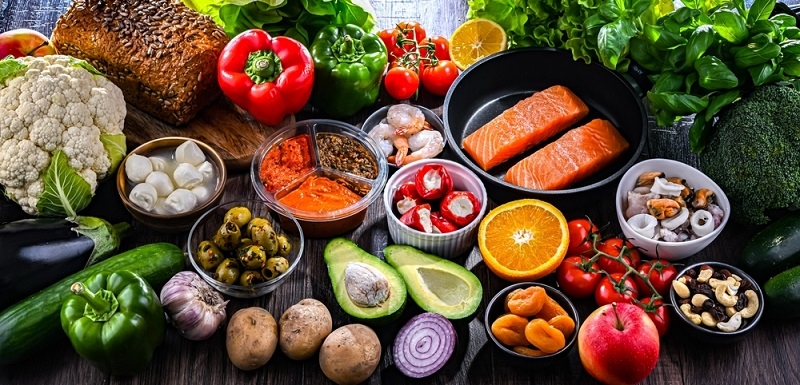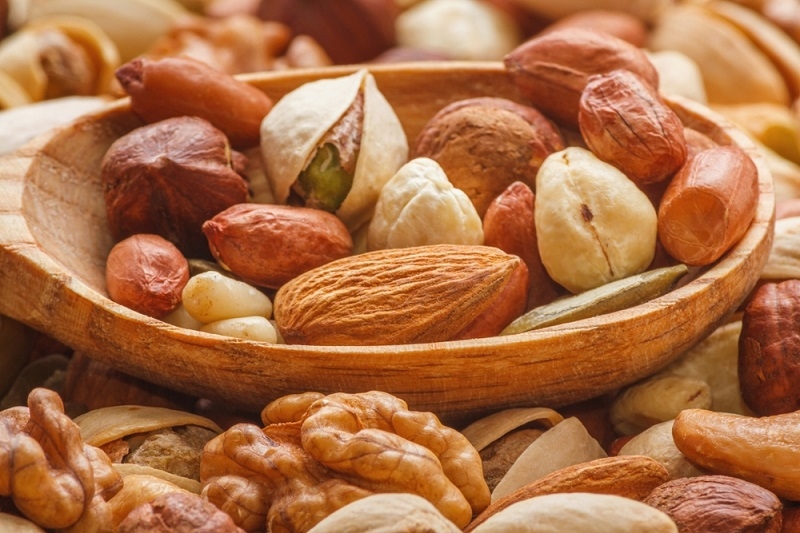
Inflammation might sound like a wellness buzzword, but it’s the root of a lot more than just temporary discomfort. We're talking joint pain, heart issues, brain fog, even chronic illnesses that quietly chip away at your long-term health. And while pills and prescriptions get all the spotlight, your plate might be the most powerful weapon you've got.
Enter the Mediterranean diet. This isn't some fad. It's a time-tested way of eating built around simple, whole foods that work with your body—not against it. And when it comes to fighting inflammation? These Mediterranean anti-inflammatory foods do more than hold their own. They're flavorful, versatile, and science-backed.
Let’s break down seven Mediterranean foods that pull double duty: reducing inflammation while boosting your overall health.
If the Mediterranean diet had a crown jewel, extra virgin olive oil (EVOO) would wear it proudly. Forget fancy supplements—this bottle on your kitchen counter is packed with polyphenols and healthy fats that work overtime.
Olive oil inflammation benefits are real. Thanks to oleocanthal, a natural compound that mimics the effects of ibuprofen, EVOO helps reduce the body's inflammatory response. It’s not just talk—studies show that daily consumption can lower markers like CRP (C-reactive protein), a key sign of inflammation.
How to use it:
Want real olive oil inflammation benefits? Go for cold-pressed, extra virgin, and store it away from heat and light.
You want to tame inflammation? Fatty fish like salmon, mackerel, sardines, and herring are your go-to. These fish are swimming in long-chain omega-3 fatty acids (EPA and DHA), the kind your body loves but can’t produce on its own.
The fatty fish omega-3 anti-inflammatory effect is one of the most powerful in the food world. Omega-3s actively shut down inflammatory pathways and support everything from joint flexibility to brain health. If you’ve got stiffness, bloating, or autoimmune flare-ups, these fish might just be your secret weapon.
How to use it:
Aim for at least two servings a week to keep that fatty fish omega-3 anti-inflammatory engine running strong.
If it’s dark, leafy, and green—it belongs on your plate. Think spinach, kale, chard, arugula, collards. These greens aren’t just there to make your meals look healthier; they are your inflammation-fighting base.
Why? Magnesium, vitamin K, folate, and carotenoids. That’s your leafy green dream team. These nutrients directly support your immune system and cut down oxidative stress.
Leafy greens reduce inflammation in both the gut and bloodstream. That means better digestion, improved heart health, and a brain that stays sharper longer.
How to use it:
And yes, make sure these leafy greens reduce inflammation the natural way—fresh, not overcooked, and dressed with healthy fats.
Chickpeas, lentils, black beans, and kidney beans are often overlooked, but their anti-inflammatory credentials are solid. Legumes and beans are anti-inflammatory thanks to their fiber, plant protein, and antioxidant content. They help regulate blood sugar and support gut health—two major players in inflammation control.
A 2020 study published in Nutrients showed that individuals who regularly ate legumes had significantly lower levels of inflammatory markers. Add them to soups, stews, grain bowls, or make a simple hummus. Legumes Beans anti-inflammatory benefits are budget-friendly and easy to access.

Almonds, walnuts, pistachios, chia seeds, flaxseeds, and sunflower seeds may be small, but don’t let size fool you. These are some of the most nutrient-dense foods you can eat.
Nuts seeds inflammation fighters work through multiple channels: healthy fats, magnesium, fiber, and antioxidant vitamin E. Walnuts, in particular, are rich in ALA (a plant-based omega-3) that supports brain and heart function.
How to use it:
Want to get the full benefit of nuts seeds inflammation fighters? Go raw or dry-roasted—skip the salty, sugar-coated varieties.
Berries may not grow exclusively in the Mediterranean, but they fit the diet like a glove. Blueberries, strawberries, raspberries, and blackberries are packed with anthocyanins—a class of antioxidants that actively reduce oxidative stress and cool inflammation.
In simple terms: eat the rainbow, especially if it's berry-colored. These fruits help regulate blood sugar, support immunity, and enhance skin and cognitive health.
How to use it:
Eat berries several times a week, and you’ll see the anti-inflammatory benefits add up—deliciously.
Refined carbs stoke the inflammatory fire, but whole grains like quinoa, brown rice, bulgur, and barley do the opposite. Foods rich in fiber and antioxidants, they help regulate blood sugar and improve gut health—key to managing inflammation.
Studies have shown that replacing refined grains with whole grains can significantly reduce CRP, a major inflammatory marker. Start your day with oatmeal, or swap white rice for farro. It’s a small step with a massive impact.
None of these ingredients work in isolation. What makes the Mediterranean diet so powerful is how these foods come together daily to build an anti-inflammatory rhythm into your meals. The synergy is real.
Here’s what a typical anti-inflammatory day might look like:
More to Discover: Top 10 Creatine Rich Foods Every Man Should Add to His Diet
There’s no need for mystery pills or overpriced powders when the Mediterranean pantry is already stacked with inflammation-fighting, health-boosting essentials. From olive oil to legumes, these foods do more than taste good—they support your body where it counts.
So next time you plan a meal, think color, crunch, and good fat. Toss leafy greens with olive oil, plate up grilled fish with a side of beans, or top your oatmeal with walnuts and berries. Your taste buds will thank you—and so will your cells.
Simple. Sustainable. Strong. That’s how Mediterranean anti-inflammatory foods make a difference.
This content was created by AI